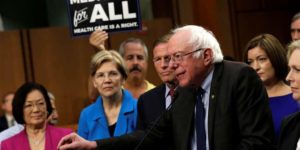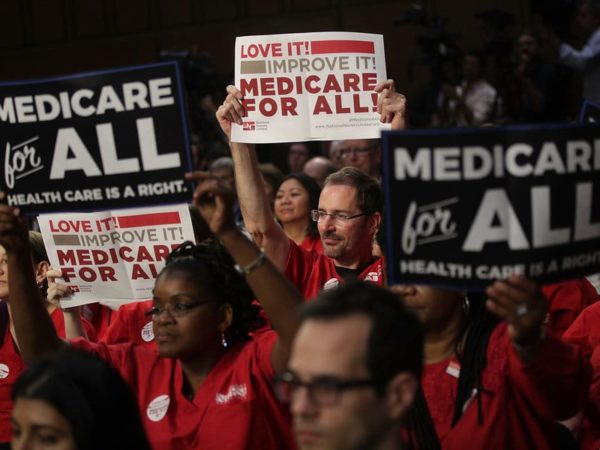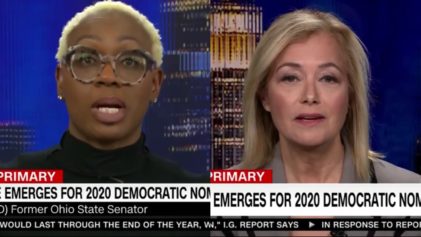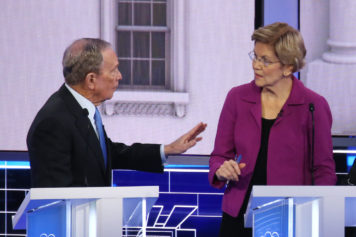
Bernie Sanders at Medicare for All Rally
Nobody dies because they don’t have access to health care. At least not according to Idaho Rep. Raul Labrador, who made the assertion in May shortly after House Republicans voted to repeal key parts of the Affordable Care Act.
Faced with backlash during a town hall at Lewis-Clark State College, in Lewiston, Idaho, Labrador insisted “No one wants anybody to die. That line is so indefensible.” Adding, “Nobody dies because they don’t have access to health care.”
Tell that to the family of Conan Soranno, a Los Angeles photographer whose story recently went viral after his documenting — and later succumbing to — an illness. The family is using his story to spread awareness about the battle those without adequate care face.
“This weekend has hell, but it has allowed me to bring up a serious topic. It’s about being poor and why that is the biggest cause of death in someone who’s fighting to survive,” wrote Sorrano in his final Facebook post.
Adding, “Pretty f*cked up that some people have to make hard decisions like that. Hospital or homeless.”
Unfortunately, it’s a decision that many Americans will face, thanks in part to a broken system. Despite being a global economic leader, when it comes to adequate healthcare for its citizens the United States continues to lag behind other developed nations. It’s also a debate that comes with real consequences, with those on the losing side — citizens like Soranno — not always given another chance to state their case.
And unfortunately, Sorrano’s case is not unique. According to a 2009 Harvard study, uninsured working-age Americans have a 40 percent higher risk of death than those insured by private plans.
“The uninsured have a higher risk of death when compared to the privately insured, even after taking into account socio-economics, health behaviors, and baseline health,” said author Andrew Wilper, M.D.
“Doctors have many new ways to prevent deaths from hypertension, diabetes, and heart disease — but only if patients can get into our offices and afford their medications.”
Even after spending more on health care than any other nation in 2011, the United States continues to lead from behind, currently ranked 50 out of 55 on Bloomberg’s Health-Care Efficiency Index.

Medicare for All Rally Alex Wong/Getty Images
Speaking with Bloomberg about the study, Wilper explained the U.S. system “tends to be more fragmented, less organized and coordinated, and that’s likely to lead to inefficiency.”
There are far more questions than answers, with both sides of the political aisle left scrambling for solutions. For Republicans, it’s meant focusing on repealing Obamacare, a move that’s largely been unsuccessful, thanks in part to their failure to provide a viable alternative.
For Democrats, it’s meant addressing the elephant in the room, namely whether or not to stand behind a single-payer system that would replace private health insurance with a government-run program, expanding Medicare coverage to all Americans.
Like a political football, health care has been punted down the field for years, with each administration grappling with — or ignoring — the issue. Leading the charge now is Vermont Senator Bernie Sanders, who introduced the Medicare for All Act of 2017 earlier this week via the New York Times.
“This is a pivotal moment in American history. Do we, as a nation, join the rest of the industrialized world and guarantee comprehensive health care to every person as a human right? Or do we maintain a system that is enormously expensive, wasteful and bureaucratic, and is designed to maximize profits for big insurance companies, the pharmaceutical industry, Wall Street and medical equipment suppliers?” wrote Sanders.
He went on, “We remain the only major country on earth that allows chief executives and stockholders in the health care industry to get incredibly rich, while tens of millions of people suffer because they can’t get health care they need. This is not what the United States should be about.”
With Republicans firmly in control of both the House and the Senate, single-payer is a proposal unlikely to gain real traction, for now at least. But with 16 Senators now on board, including California Democrat Kamala Harris, it’s an issue America can no longer ignore. As well as one that will likely become a deciding factor in the 2018 mid-term elections.
But while Kaiser Family Foundation senior vice president Larry Levitt admitted that “The single-payer government system has the potential to control prices much better than our current system,” he also cautioned against unseen costs.
“More people would be covered — and that would drive up spending — and having no deductibles and co-pays will sound great to patients, but it means that people will be going to the doctor a lot more than they are now, and that will drive up spending,” he explained.
It’s become a polarizing issue in America, with some in favor of raising taxes to provide coverage for all and others against it altogether. Fear of the unknown often prevents change, a tactic the GOP has successfully used to prevent the conversation from moving forward on the national stage.
“This plan forces every Democratic candidate on the ballot in 2018 to state their position on single-payer health care and whether they support the massive tax increases and total government control that comes with it,” said National Republican Congressional Committee spokesman Jesse Hunt.
Leading the opposition is the White House, with Trump announcing “Bernie Sanders is pushing hard for a single payer health care plan — a curse on the U.S. and its people. I told Republicans to approve a health care fast or this would happen. But don’t worry, I will veto because I love our country and its people.”
Can you feel the love?
Of course, it’s hard to know just what, or who, Trump really stands behind. Known for flip-flopping on a number of stances, as early as May he was praising Australia’s — single-payer — system. During a joint press conference with Prime Minister Malcolm Turnbull he famously noted “I shouldn’t say this to our great gentleman and my friend from Australia because you have better health care than we do.”
It’s not the first time Trump addressed the issue either, writing in his 2000 book “The America We Deserve,” “The Canadian plan also helps Canadians live longer and healthier than Americans. There are fewer medical lawsuits, less loss of labor to sickness, and lower costs to companies paying for the medical care of their employees.”
“If the program were in place in Massachusetts in 1999 it would have reduced administrative costs by $2.5 million. We need, as a nation, to reexamine the single-payer plan, as many individual states are doing,” wrote Trump.
Caught in the middle are Americans who simply want results, relief and protection from excessive health care costs and limited coverage — a sentiment Democrats hope will resonate with voters in upcoming elections.
For Sanders, a Democratic Socialist independent who caucuses with Democrats, it’s time to draw a line and stand behind it: “Americans should not hesitate about going to the doctor because they do not have enough money. They should not worry that a hospital stay will bankrupt them or leave them deeply in debt.”


